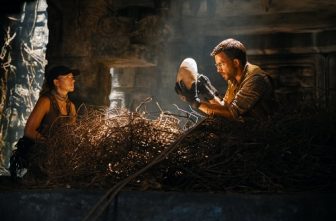
I am a convert to Catholicism. Prior to entering the Church in 2016, I served for some years as an ordained minister in the Episcopal Church, a Protestant denomination.
Part of my job at that time was to oversee a small hospitality house for the homeless in Durham, North Carolina. The house had, more or less accidently, come into existence as a group of us Duke University students had gotten to know some homeless men in the area. One thing led to another, and eventually some of us found ourselves living in a large, rented house along with several of these new homeless friends. We were inspired in this largely by Dorothy Day and Peter Maurin — and their roles in the Catholic Worker Movement — who stressed our personal responsibility to the poor and advocated the creation of these sorts of houses.
There’s much more to that story, but I mention it because what impressed me about Day and Maurin was the way that, for them, a life of engagement with the poor, Catholic social teaching and social justice was simply part and parcel what being a Catholic was and not an optional addition you could tack on if it was “your calling.” They went to daily Mass, they affirmed everything the Church taught, and so it was obvious to them that the rest of their lives should radically reflect this. They couldn’t imagine being Catholics and living any other way. They found their inspiration in the lives of the saints, the Church Fathers, and the Benedictine and Franciscan traditions. I eventually became a Catholic largely because I was compelled by this wholistic account of the faith.
And so, when I did enter the Church, I was puzzled when it became apparent pretty quickly that some of my new coreligionists were trying to figure out what kind of Catholic I was. Liberal? Conservative? Social justice warrior? Liturgy Nazi? For the family? Or for the poor? I realized I was being asked to choose my Catholic identity from a buffet of issues derived from a world of political polarizations and secular social debates. Because I had been introduced to the Church by Day and Maurin, I didn’t find myself identifying with any of these labels. I really did believe everything the Church taught and did my (mediocre) best to practice it. That should make me a “conservative.” But I also loved Pope Francis’ desire for “a poor Church for the poor.” That should make me a “liberal.” But I was neither liberal nor conservative, I was Catholic.
My involvement with the homeless in Durham had come at a time when my faith was flimsy. Reading lots of secular philosophy and living a morally unserious life are sure ways to start wondering if we could ever really know God at all, or if there was maybe just, behind it all … nothing. But at just that moment I was swept up into friendship with the poor, the liturgy, and Christian community. Before long, it became clear that the only real alternative to existential despair was a radical commitment to the Gospel like I saw in Maurin and Day. At the same time, it also soon became clear that it was only the fullness of the Catholic Church that could call for and sustain such a life. There really could be no half-measures. It was Catholic or nothing.
This is the perspective I plan to bring to this column. The Church’s approach to “social justice” must be, first, rooted in the Church. Catholic social teaching is nothing more or less than the attempt to see all human life and culture, including economics and politics, with unapologetically Catholic eyes. But the world looks different, after all, depending on where you’re standing. And that means we have to be standing in the Church. Yes, in her teaching, but also in her liturgy, works of mercy, and thick community life. Only then will we have the eyes to see the world the way it really is — and only after we see it will we be able to act in it. That’s why the Church has to come first.
Miller is director of Pastoral Care and Outreach at Assumption in St. Paul. He has a Ph.D. in theology from Duke University, and lives with his family at the Maurin House Catholic Worker in Columbia Heights. You can reach him at colin.miller1@protonmail.com.




